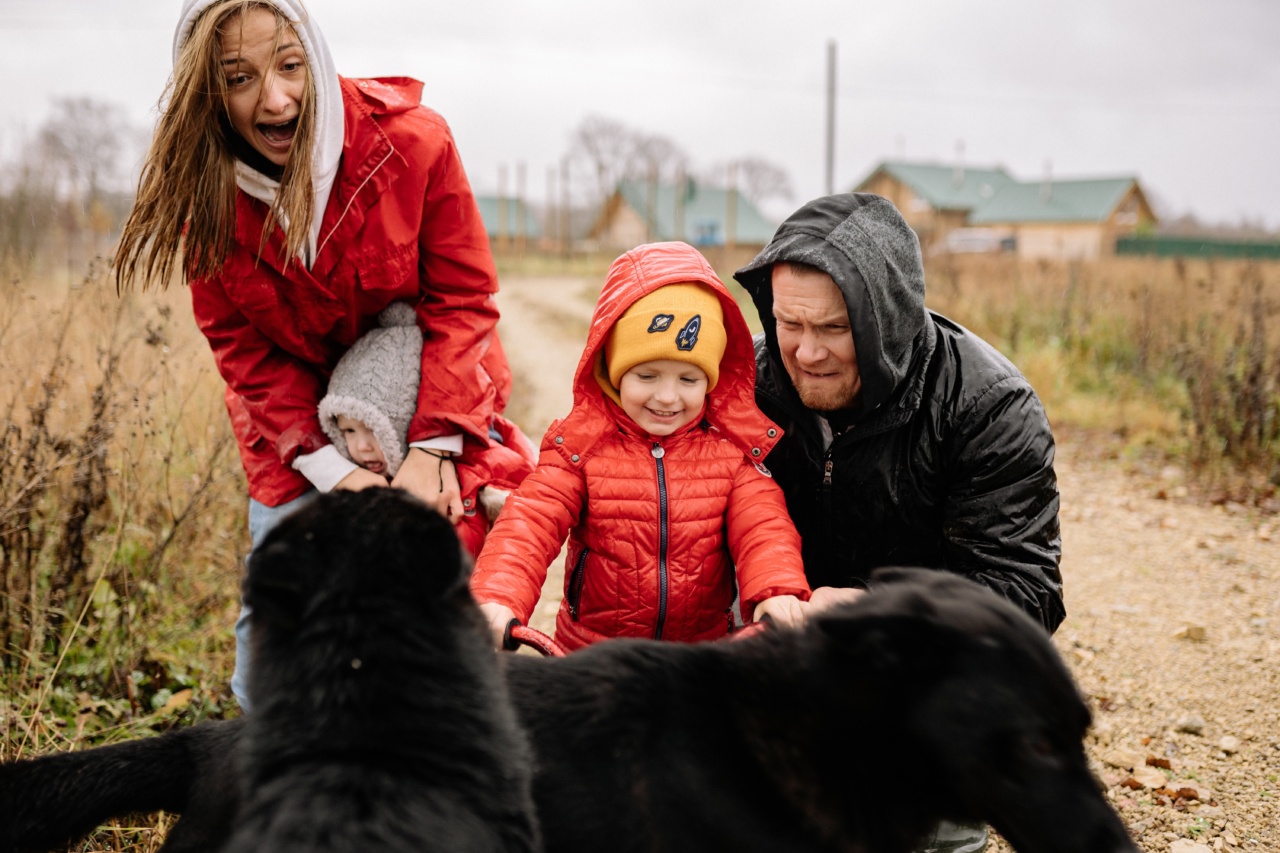When it comes to providing a perfect companion for children, there’s no denying that dogs are often the top choice for families.
Dogs not only serve as loyal and loving pets but can also have a positive impact on a child’s development and overall well-being. In this article, we will explore the benefits of having a dog as a companion for children and why they can be the perfect match.
1. Emotional Bond
Dogs are known for their ability to form strong emotional bonds with their human counterparts. This connection is no different when it comes to children.
Owning a dog helps teach children valuable emotional skills such as empathy, compassion, and responsibility. The unconditional love and acceptance that a dog provides can also boost a child’s self-esteem and overall emotional well-being.
2. Physical Activity
Children, especially in today’s digital age, can easily spend hours in front of screens, leading to a sedentary lifestyle. Having a dog encourages physical activity as they require daily walks, playtime, and exercise.
Whether it’s chasing a ball in the yard or going on a hike, the presence of a dog motivates children to engage in physical activities, promoting a healthier lifestyle.
3. Teaching Responsibility
Dogs require regular care, including feeding, grooming, and medical check-ups. By involving children in these tasks, they learn valuable life skills and develop a sense of responsibility.
Taking care of a dog teaches children the importance of routine, commitment, and accountability, which are essential qualities for their future.
4. Social Skills
Dogs can help children develop essential social skills. When walking or playing with their furry companion, children often encounter other dog owners and their pets.
Interacting with other dog owners and their dogs provides an opportunity for children to practice their social skills, such as greeting others, initiating conversations, and sharing experiences. Dogs can also act as a conversation starter, helping shy or introverted children overcome their social anxiety.
5. Stress Relief
Children, like adults, often experience stress in their daily lives. Dogs have a calming effect and can help alleviate stress and anxiety in children.
Petting, playing, or cuddling with a dog has been shown to reduce cortisol levels (the stress hormone) and increase oxytocin levels (the feel-good hormone) in both children and adults. Having a dog as a companion provides a source of comfort and emotional support during times of stress or difficult situations.
6. Cognitive Development
The presence of a dog can have a positive impact on a child’s cognitive development. Studies have shown that interacting with dogs can enhance cognitive functions such as memory, problem-solving, and attention span.
Dogs can also stimulate a child’s curiosity and interest in learning, making education a more enjoyable and engaging experience.
7. Allergy Prevention
Contrary to popular belief, having a dog at home can actually lower a child’s risk of developing allergies.
Research suggests that early exposure to dogs and other pets can strengthen a child’s immune system, reducing their likelihood of developing allergies later in life. It’s important to note that individual allergies vary, and consulting with a healthcare professional is advisable for those with a known family history of allergies.
8. Companionship and Loneliness
Dogs provide constant companionship and can be a source of comfort for children, especially during times of loneliness or sadness. The presence of a dog can help children feel more secure, loved, and understood.
Dogs are excellent listeners and loyal friends, making them the perfect confidants for children who may not feel comfortable sharing their thoughts and emotions with others.
9. Building Trust and Empathy
The relationship between a child and their dog promotes the development of trust and empathy. Dogs are non-judgmental and accepting, creating a safe space for children to express themselves freely.
This unconditional love and acceptance from a dog help children understand the importance of trust and empathy in their relationships with others.
10. Lifelong Memories
Growing up with a dog creates lasting memories and experiences for children. The bond formed with their furry friend is something they will cherish and remember throughout their lives.
Dogs teach children the value of friendship, love, and loyalty, and the memories created together will become cherished stories shared with their own children in the future.
Conclusion
There’s no doubt that dogs make the perfect companions for children. From fostering emotional bonds to teaching responsibility and promoting physical activity, dogs have a significant impact on a child’s well-being and development.
The unconditional love and loyalty that dogs provide create a sense of security and comfort for children, making them an invaluable part of the family. However, it’s essential to remember that owning a dog requires commitment, time, and responsibility from the entire family. When properly cared for and trained, dogs and children can form an incredible bond that will last a lifetime.































